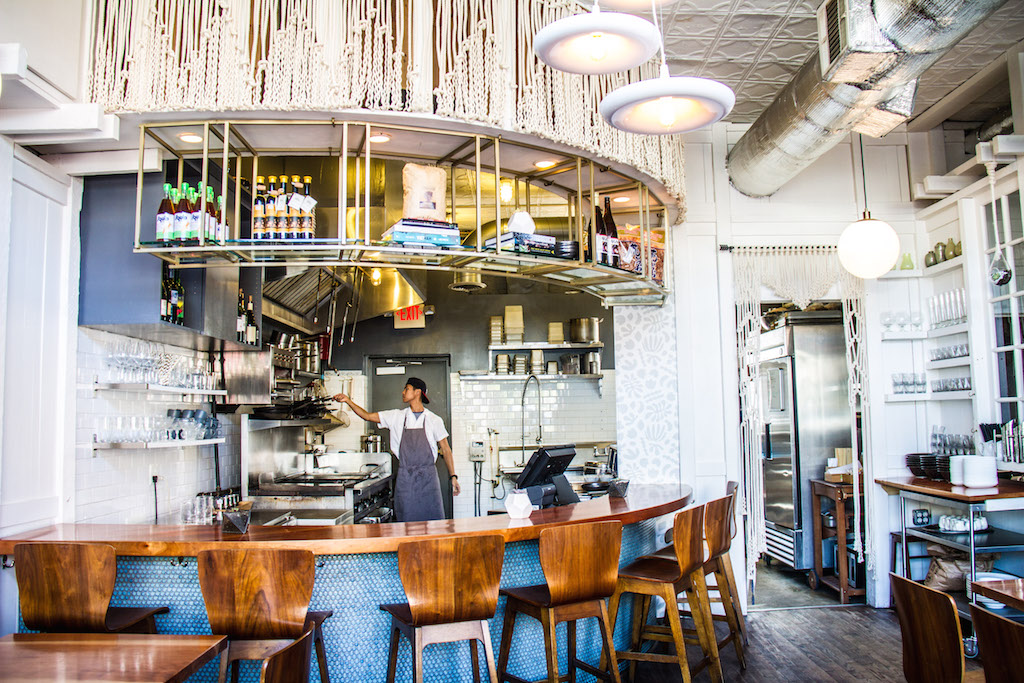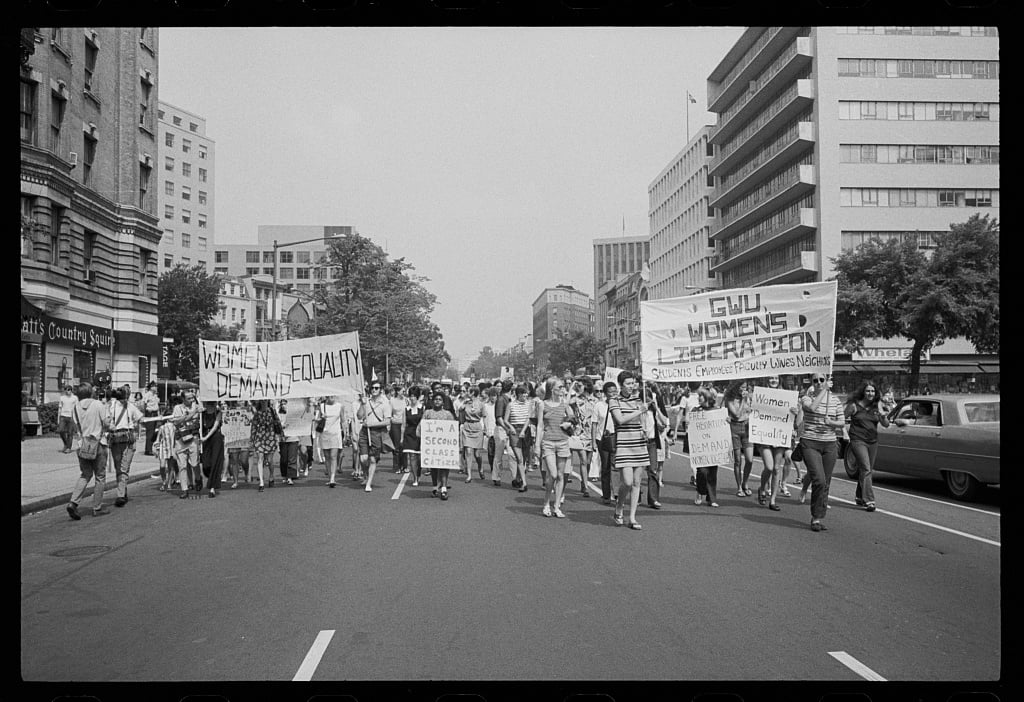Less than a month ago, over 100 bars and restaurants around DC closed for a Day Without Immigrants. Some business owners—including the movement’s most high-profile chef, José Andrés—committed to close in advance of the February 16 protest, which called on foreign-born workers to take a day’s leave. Others, when faced with a staff shortage, shuttered more abruptly, or served limited menus.
By contrast, there are few DC bars or restaurants closed or limiting service for Wednesday’s A Day Without A Woman strike. Obviously the protest engages different issues and demographics. Historically immigrants are the backbone of the hospitality industry, while the rise of women in professional kitchens is more recent phenomenon—and one that’s still slowly growing. There’s also the matter of how we protest. While the immigrant strike honed in on leaving work, A Day Without A Woman—organized by the Women’s March of Washington on International Women’s Day—calls for absence only as one of a few options. Another is to support female and minority-owned small businesses, and/or wear the color red in solidarity.
Still, compared to how the industry rallied behind the immigrant protest—and the smashing success of January’s Women’s March—the reaction to A Day Without a Woman seems anticlimactic. Is this strike, well, less of a strike?
Part of the discrepancy lies in organization, or lack thereof. The Day Without Immigrants was a grass-roots movement without a directive body, and it spread fast—meaning only a few days, at most, for restaurants to rearrange and cover shifts for striking employees. By contrast, A Day Without a Woman has been weeks in the making, and even has an official website and endorsements. Business owners had ample time to consult with staff, and make arrangements to remain open—all while supporting the cause if they chose.
Bars like Eat the Rich in Shaw and restaurants such as Woodridge’s Nido arranged for men to cover shifts so female employees could strike. At Eat the Rich, the male barkeeps will give their tips to the female employees for whom they’re covering, or to a charity of their choosing. At Nido, co-owner Erin Lingle organized a temporary male staff—many friends and family—to take over for her mostly-female employees on Wednesday, which turned into a simultaneous fundraiser for Planned Parenthood.
“We talked about closing for the day, but the staff was more interested in trying to stay open,” says Lingle. “As a female business owner with a female staff, what’s happening right now in the political climate directly affects all of us. This was a way for us to contribute.”
Pizzeria Paradiso owner Ruth Gresser also spent weeks rearranging schedules so that front-of-house female employees—roughly 22 out of 33 across all three pizzerias—could take a day of paid leave (female cooks were also granted the same option, though their numbers are fewer, and logistics simpler). As one of the most vocal chefs involved the protest, the veteran restaurateur distributed a statement, and opted to serve only half her food and beer menu symbolizing the absence of half the world’s female population. Still, the public gesture came with some skepticism about the protest overall.
“There does seem to be a limited engagement rate around this action,” says Gresser. “I don’t usually announce this kind of thing to the world. If it doesn’t get the engagement, it kind of reinforces for me the way women are in society. I think that we aren’t validated or valued by the society we live in—and it’s Intentional Women’s Day, so I’m not talking just the United States. We’re taught that we’re the helpers, the caretakers, so we’re the last ones to recognize our own needs.”
For many women restaurant owners, Gresser included, staying open remains the priority. It’s not as dramatic or symbolic as going dark, the literal translation of A Day Without a Woman. But it is a statement itself of women’s vital contribution to the industry. It’s also the only realistic option for a large number of businesses that can’t afford to sacrifice the income.
“There’s only so many days we can close for something like that [a protest]. We’re still a business,” says Carlie Steiner, co-owner of Himitsu in Petworth. Steiner and chef Kevin Tien shuttered their 24-seat restaurant to show support for A Day Without Immigrants, and discussed another closure with their staff for Women’s Day before deciding to stay open. Like a growing number of restaurants, the owners will donate partial proceeds from their sales to charity—in Steiner’s case, Planned Parenthood.
“The Day Without Immigrants was more of an apparent directive for me,” says Steiner. “It was important to close and help give people a voice who might not have a voice. For someone who’s been in the industry for over 12 years, I’ve worked alongside people who’ve felt they’ve been mistreated and don’t have a voice. This is my business, and as a woman, I’m choosing to stay open.”
















